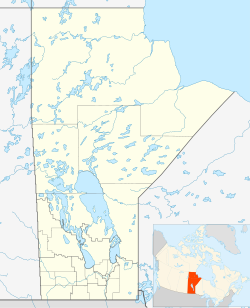Garden Valley Collegiate-(GVC)
| Winkler | ||
|---|---|---|
| City | ||
| City of Winkler | ||
|
||
| Motto: Yes, Winkler! | ||
| Location of Winkler in Manitoba | ||
| Coordinates: 49°10′54″N 97°56′23″W / 49.18167°N 97.93972°WCoordinates: 49°10′54″N 97°56′23″W / 49.18167°N 97.93972°W | ||
| Country | Canada | |
| Province | Manitoba | |
| Region | Pembina Valley | |
| Incorporated - Village |
May 9, 1906 |
|
| - Town | April 7, 1954 | |
| - City | April 7, 2002 | |
| Government | ||
| • City Mayor | Martin Harder | |
| • Governing Body | Winkler City Council | |
| • MP (Portage—Lisgar) | Candice Bergen (CPC) | |
| • MLA (Morden-Winkler) | Cameron Friesen (PC) | |
| Area | ||
| • City | 17.02 km2 (6.57 sq mi) | |
| Elevation | 259 m (850 ft) | |
| Population (2016 Census) | ||
| • City | 12,591 (6th) | |
| • Density | 466.7/km2 (1,209/sq mi) | |
| • Urban | 12,005 | |
| Time zone | CST (UTC−6) | |
| • Summer (DST) | CDT (UTC−5) | |
| Forward sortation area | R6W | |
| Area code(s) | 204 | |
| Demonym | Winklerite | |
| Website | City of Winkler | |
Winkler is a small city with a population of 12,591 (2016 federal census) located in southern Manitoba, Canada surrounded by the Rural Municipality of Stanley. It is one hundred kilometres southwest of Winnipeg. As the largest city in the Pembina Valley, it serves as a regional hub for commerce, agriculture and industry.
Winkler is Manitoba's sixth-largest city (as of 2011) and the second fastest growing city out of nine in the province.
Winkler's history dates back to 1874 when German speaking Mennonites from Russia began settling in the area. These first Mennonite inhabitants were part of deeply religious communities, for the most part, but did not establish confessional churches. The first official Mennonite Brethren congregation was founded in Winkler in 1888 as a result of mission work from the United States. In 1892, Winkler was officially founded by Valentine Winkler, a lumber entrepreneur and politician who owned and operated his own lumber business in nearby Morden. Because Winkler's many customers from the Mennonite settlement wanted him to build a market in their vicinity, he persuaded the Canadian Pacific Railway to build a spur route on the northeastern edge of the settlement where Winkler had been established.
Winkler was incorporated as a village on May 9, 1906. By that time, the flourishing village had become home to a number of German, Jewish and Anglo-Saxon merchants. The Mennonites began moving into the village soon after; by World War I, they outnumbered all other groups.
...
Wikipedia


